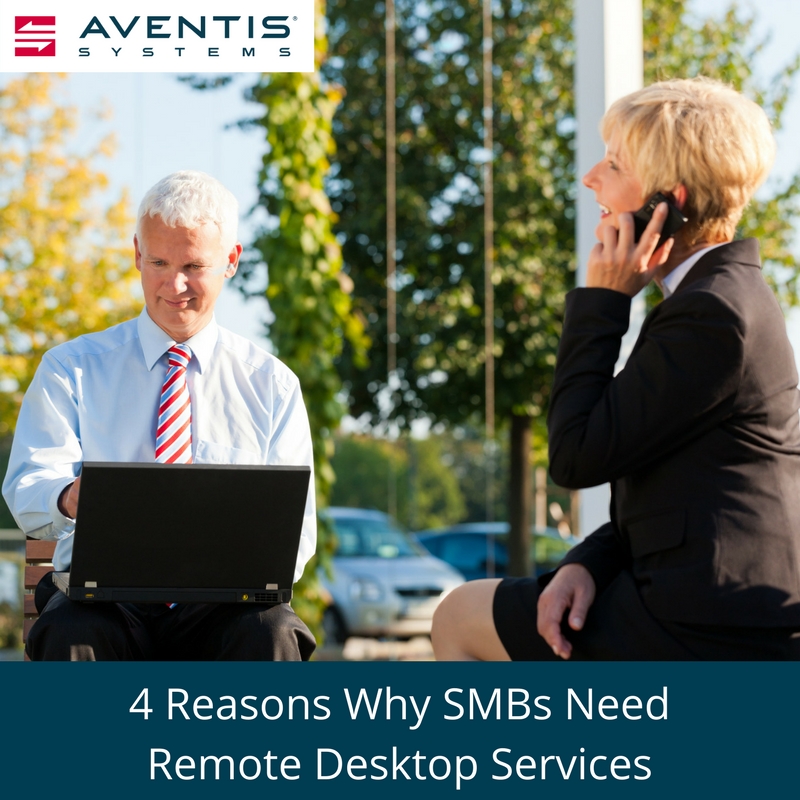4 Reasons Why SMBs Need Remote Desktop Services
When it comes to infrastructure management, it is common for small-to-midsize businesses and organizations to wonder if solutions suited for large enterprises will also suit their unique needs. In this blog article we address how the Windows Server role called remote desktop services, or RDS, is suitable and very beneficial to SMBs.

RDS is a server role within Microsoft Windows Server 2008 R2 and newer versions. Previous versions of Windows Server refer to this role as Terminal Services. RDS, or terminal services, allow users to remotely access Windows-based applications installed on a host server or the full Windows desktop from within a network or via the internet. Below are four key reasons why small and medium-sized enterprises benefit from this server role.
1. Ease of Deployment
RDS allows for quick deployment of Windows-based applications. Deploying a program on one host server rather than all end user devices saves IT department time and resources. Companies of all sizes benefit from saved time and resources.
2. Simplified Software Upgrades
In addition to easy deployments of new programs, software updates and maintenance are also simplified through RDS. Limited network bandwidths of smaller organizations benefit from this feature as upgrading software on a host server rather than user devices saves valuable bandwidth, not to mention additional IT resources.
3. Secure Remote Access
Numerous benefits arise from the ability to remotely access applications over a secure connection. IT professionals and small business owners can work remotely, even on vacation, without having to drive to the office or store information on personal devices. Any time company information is stored on personal devices, precious data is put at risk because proper backup protocols are likely not in place.
4. Application Performance
RDS provides access to numerous Windows-based programs such as Microsoft Office, Accounting Package, Internal CRM, File Server, and many more. Because these applications utilize shared resources, end users experience improved performance especially for data-heavy programs.
Organizations of any size can benefit from the server role RDS in Windows Server as it allows IT professionals to deploy, upgrade, and maintain software programs easily, and increases performance of data-heavy programs to provide a better end user experience.